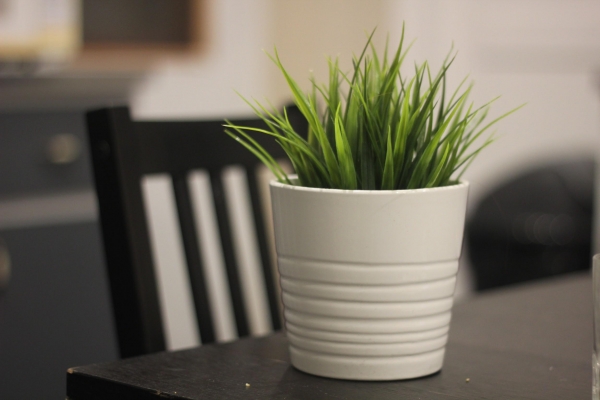Until this year, my university career had mostly consisted of evading responsibility and exhibiting a never-ending lack of foresight. Entering the Fall 2017 semester, however, I decided it was time for a change. Taking the biggest step I felt capable of, I bought a plant. Weighing in at approximately five pounds and standing at six inches tall, my brand new aloe plant would, theoretically, serve as a daily reminder that I was a functioning adult and member of society.
Miraculously, the plan worked. While tending to it was relatively easy and not at all time-intensive, it absolutely served its purpose. My mom had warned me that raising an aloe plant was difficult, and that even if I stayed on top of it, the plant would likely die alarmingly quickly. However, I was proud to prove her wrong. Every day, rain or shine, the plant’s leaves glistened as if it didn’t have a problem in the world.
This success, I would find out about a month into my venture, was because my plant was actually made of plastic.
When this discovery originally came to light, my rising sense of self-confidence crumbled to pieces; I felt overwhelmed with shame and embarrassment. I felt as though my tiny leafy friend had bitten my feeding hand. As I emptied the ever-rising pool of water from the bottom of my vase into my sink, I couldn’t help but feel as though my future in the world of adulthood was bleak at best.
Yet, in retrospect, this visceral reaction was foolish. Today, several months later, I look back at my journey with the plant fondly. If, in buying a plant, my goal was to learn a lesson, then a lesson I learned. University—and this stage of young adulthood we find ourselves in—is a time to learn from our mistakes.
As we navigate the landscape of higher education and newfound freedom, we inevitably face innumerable choices: Should you take an 8:30 a.m. class on a Friday? Should you add guac to your Quesada order? Should you swipe right? Should you buy your first plant? Although it’s easy to see each of these choices as lasting and impactful, it’s important to remember that, more often than not, their outcomes don’t matter.
What matters, rather, are the learning process and emotional growth that go into making each of those choices. It’s making a novel decision and understanding it as exactly that—new, untested, and, by extension, far too often bound for failure. Whether that Tuesday at Café Campus brings you an unforgettable night, or whether you end up freezing in line the entire time, ultimately, it’s not the end result that you carry with you moving forward. While my plant may have been artificial, my efforts and my care for it were not. I can proudly say that I learned a lot about responsibility, adulthood, and the deceptive realness of plastic along the way.
Since the tragedy of my precious, plastic aloe plant, I’ve bought a new one. This one, a much larger specimen that hangs from the ceiling in my kitchen, I can say with about 99 per cent certainty is real. Truthfully, there are things about this plant, much like my plastic plant, and even plants in general, that I will never understand. I haven’t watered it in weeks, yet I routinely check its soil and find it damp. While disorienting, I take this in stride. And, like so much else, I have no doubt that even if I slip along the way, this new voyage will turn into a valuable learning experience for me nonetheless. After all, these are not only the mysteries of botany, but the mysteries of growing up.








